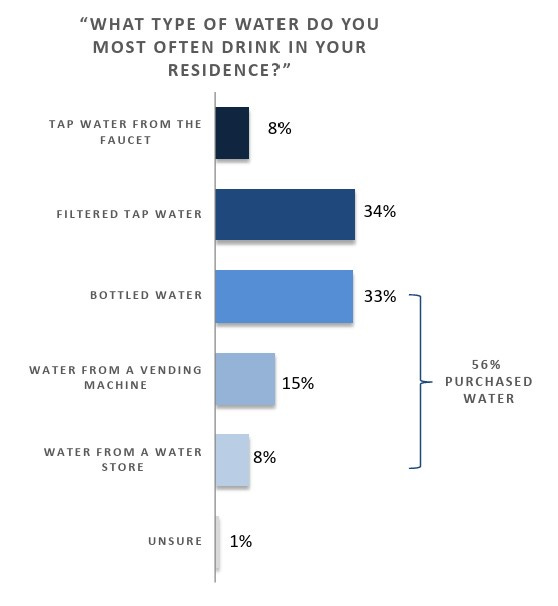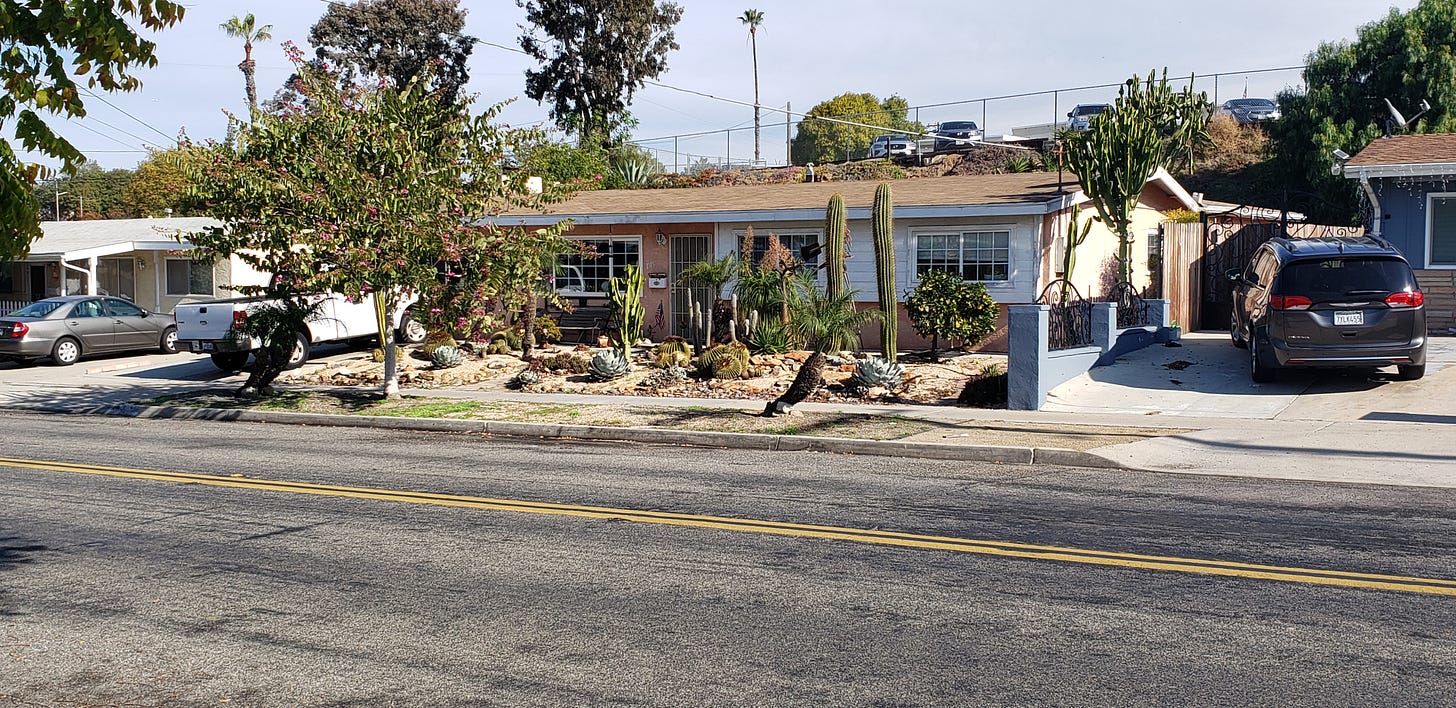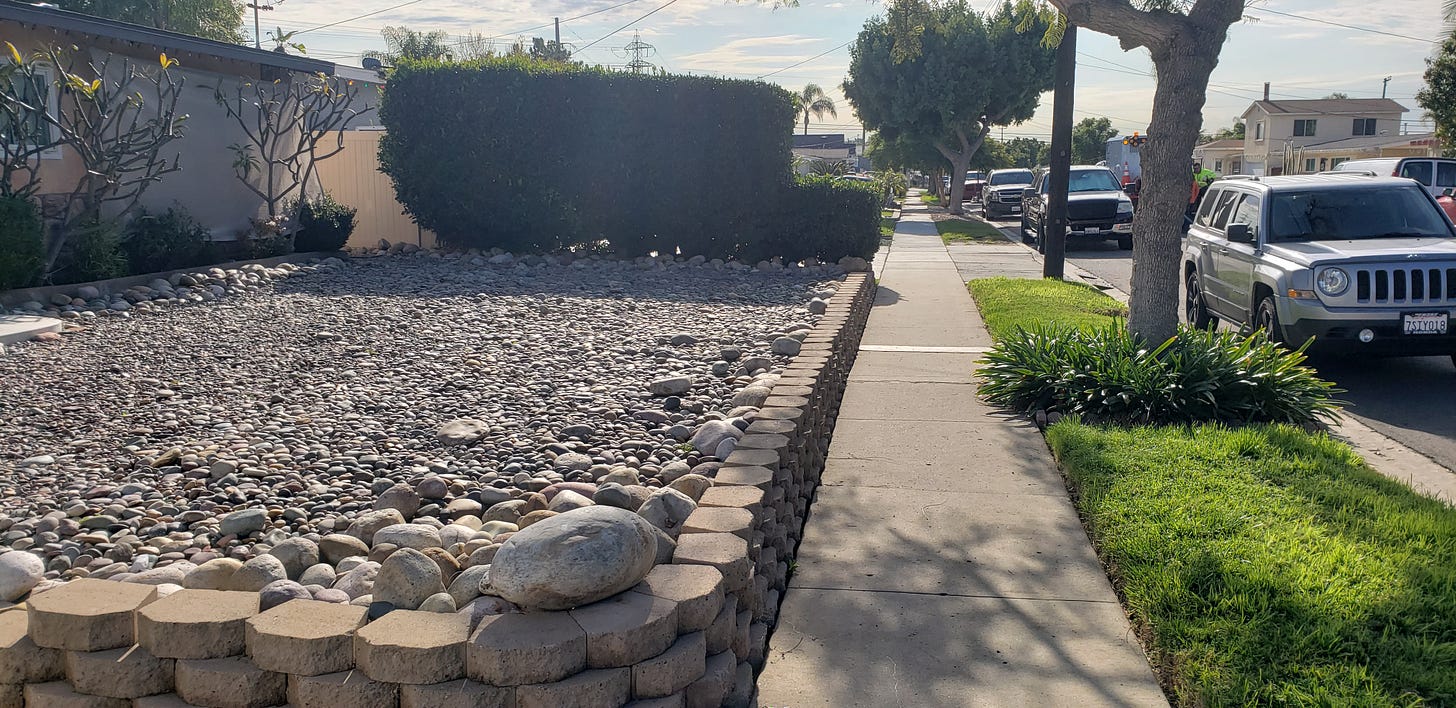Interview: Carlos Quintero-General Manager at Sweetwater Authority
Sweetwater general manager talks about hiring private consultants and making conservation rebates affordable for low-income ratepayers
Carlos Quintero became Sweetwater Authority’s general manager in September of 2021.
According Sweetwater’s website, “Sweetwater Authority provides safe, reliable water service (since 1977) to approximately 200,000 people in a 36 square-mile service area that includes National City, Bonita, and the western and central portions of Chula Vista, CA.”
Before Sweetwater, for nearly 14 years Quintero was the operations manager for the Santa Ana Watershed Project Authority (SWAPA), a joint powers body run by the Eastern Municipal Water District, Inland Empire Utilities Agency, San Bernardino Water District, and Western Municipal Water District—working together on water management projects for the Santa Ana River Watershed involving water supply, water quality, recreation, and environmental restoration.
Quintero holds a Bachelor of Science degree in Urban Studies and Planning from Massachusetts Institute of Technology and is certified by the State of California as a Professional Engineer.
While at SWAPA, his focus was operating the Inland Empire Brine (waste) Line, which “removes 500,000 pounds of salt per day from the [Santa Ana] watershed” and transports it to the Orange County Sanitation District where it is treated before going into the ocean.
I spoke with him on June 20, 2023, mainly about two topics: public affairs programing and water conservation rebates offered by Sweetwater Authority and other water agencies.
The interview consists of excerpts from a group interview that included Sweetwater director Paulina Martinez-Perez, the remainder of which will be published soon.
The interview has been edited for length and clarity.
SoCal Water Wars: Water districts strongly emphasize public affairs spending and it seems that in practice the main purpose is to put a happy spin on whatever the water district is doing, not to encourage ratepayers to come to meetings and become better informed.
Carlos Quintero GM: We do try. We have a lot of outreach, a lot of materials. And you've been to our meetings…Sometimes, all the chairs are sitting there empty. But we welcome the community. We urge them to come. They can address the board on any issue. Any questions—[and] you can go to our web page and submit a question.
SoCal Water Wars: I’m talking about real engagement, like a workshop for the public, not just the board of directors.
Carlos Quintero GM: We had a Citizens Advisory Committee. Right now there's no quorum. I'm going to recommend to the board to create a community advisory work-group that will provide a forum for members of the community to come and talk about a specific topic as directed by the board. Outreach could be a very good topic for members of the community to talk about. The intent is to allow and facilitate that dialog.
SoCal Water Wars: Sweetwater commissioned a very informative ratepayer survey that was conducted 2021.
Carlos Quintero GM: Yes
SoCal Water Wars: The survey showed that your ratepayers didn't know about about the rebate programs and were using expensive bottled water because they feared—incorrectly—that their tap water was dirty.
Requests for proposals were sent out to private consultants in an effort to create and implement a plan to fix that situation. Months later, I looked at the work product of NV5, the company the board. Frankly, I didn’t see evidence that it matched the urgency indicated by the survey.
Carlos Quintero GM: One of the main functions of this consultant was to help us outreach to Spanish-speaking ratepayers. Our current team does not have the ability to fully communicate in Spanish. We will hire a new bilingual public affairs staffer, enabling us do all this work in-house and shift away from the ;private] consultant.
Demographically, we have a large percentage of Spanish-speaking ratepayers. So we want to make sure that we can communicate to them the work we are doing.
SoCal Water Wars: So it's a matter of getting a Spanish-speaking person on your staff?
Carlos Quintero GM: To do public affairs, we shifted a lot of the water efficiency (conservation) activities to public affairs. The [new] job description is: help with public affairs, water efficiency, and audits and be able to communicate that work to our Spanish-speaking ratepayers.
SoCal Water Wars: But the work I looked at was translated to Spanish. Still, it didn’t go beyond what had been done before [to address the issues examined in the survey].
Carlos Quintero: I think they've done well by allowing us opportunities to talk to Spanish media. We've had various interviews with Univision, Telemundo, and Televisa as well. That probably wouldn't have been possible without NV5’s help because we didn’t have those relationships.
They've helped us develop those relationships and to communicate through Spanish media. I had quite a few interviews. In fact, our chair also had an interview some months ago (see above youtube link).
Sometimes there are important issues that originate in our service area and it’s important that the Spanish-speaking media know that we can respond as water experts to talk to the community about these issues. I don't think we could have done that without the help of the consulting firm.
SoCal Water Wars: So, as a result of that, are the Spanish-speaking ratepayers a lot more aware now of Sweetwater Authority’s [rebate] programs?
Carlos Quintero GM: If they happened to see the news clippings, I'm sure they are, because we do provide important information.
Sometimes the way I see it, honestly, is if you get your water and you never have a problem, you don't worry too much about it. So it makes your life so much easier, right? You just don't think about it too much. And yes, we wish that more of our ratepayers were more engaged.
But maybe the fact that they're not engaged is that, hey, we're doing a really good job, right? They're paying their bills, they're getting the water that they want. There's never an issue. So it's just one of these lines of work where sometimes no news is good news (big laugh from me). You know, I'm just saying we do try to engage and send information. In your bill envelope, we put information.
SoCal Water Wars: Let's go walk down any street in Chula Vista, at least on this side of the freeway where I live—it’s different when you go to Otay. They [the ratepayers] are thinking about their water. You can tell because they're not paying for upkeep of their lawns or they're laying down stones or concrete instead. And they're putting in artificial lawns, which heats up their homes more.
Carlos Quintero GM: There are rebates. Metropolitan has a big program. San Diego County Water Authority is part of that program. They give you a rebate if you remove the lawn. If you put in low-water use landscaping, you get some kind of credit. I think it's like $2 a square foot.
SoCal Water Wars: Recently you [Sweetwater] applied for a grant through the state’s Urban Community Drought Relief Grant Program. It would have allowed the district to pay participating ratepayers upfront for turf removal, instead of making them pay first, get reimbursed later. You applied for a total of $14.4 million in grants, $4.5 million for Turf replacement and Smart Irrigation devices and $10 million for Advanced Metering Infrastructure.
[Note: Over $217 million was provided for 26 water agencies, “of which $88 million will go towards projects primarily benefiting underrepresented communities.”]
Carlos Quintero GM: There was a little bump on the road. We were denied, due to an oversubscription to the available funds, accord our consultant ($1.9 billion in requests from $282 million in actual funds).
But we're not giving up.
The challenge with these rebate programs is that many households don't have the money to pay upfront costs.
Sweetwater applied for the grant so that our customers wouldn’t have to go through that. We think that's a more progressive way of doing things versus the existing model where you have to pay a fee first and wait until the form is submitted [to be reimbursed].
Usually, they send somebody to verify that you did the work and it may take you two months to get your money back. It's not cheap and will probably cost you a few thousand dollars, depending on the area. To me, because of the socioeconomics, that is not an incentive to reduce outdoor water use.







